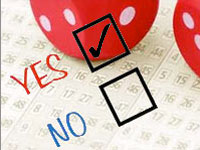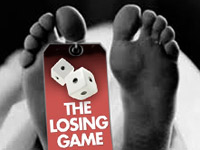
The debate on the legalization of a lottery rages on. It is regrettable that the issue is so divisive, particularly when there are so many national issues requiring unified attention such as job creation, education reform and crime eradication. But, it is what it is.
About 40 years ago while travelling through Connecticut, I discovered that a state operated lottery had been introduced with a declaration as to the use of revenue derived from the lottery.
When I returned to Nassau, I immediately wrote to Prime Minister Lynden Pindling suggesting the introduction of a national lottery in The Bahamas possibly along the lines of the one in Connecticut. The response from the prime minister, although polite, was that a lottery could not be considered at that time. Without being said, I felt that to move in that direction would unsettle the political landscape as well as the religious community.
However, we must remember that the Bahamian environment in those days was not dissimilar to what we are experiencing today. Lotteries, albeit “illegal” were in full flight. I am sure, many of us can recall the names of men like Percy Munnings, and so on. The biggest change in this activity from yesteryears has been the introduction of sophisticated electronic technology/communication.
Lotteries are virtually a way of life in the United States today. There is much good work being done for the benefit of individual states and citizens.
I personally favor the formalization of a Bahamian-based lottery subject to certain hard and unbreakable conditions being applied.
Much revenue can be generated for so many worthy causes in our country.
One of many comes to mind right now. Take a moment and read the article that appeared in The Tribune, Wednesday, July 25,2012, head- ed “Bahamas National Youth Choir Accomplishes Great Feat”. They won two gold medals and one silver at the World Choir Games in Cincinnati – this in the face of economic challenges. The statement that caught my attention was, “The choir games are held every two years. However, the choir will not be participating in 2014.”
The strain of raising money creates too much pressure. The government subsidy is welcomed, but insufficient. “Some on the costumes are rotting on the back of the girls, but they prefer to stitch them up and go out and perform.”
This should never be and there is a remedy right before us.
I do not believe that a referendum on this issue is necessary. Generally speaking, we all understand that life is enshrouded in some uncertainty. What happens should the referendum reject the “legalization” of the lottery? Does anyone believe that this so-called illegal gambling will stop? That cannot possibly be an expectation.
In my opinion, the government should without delay lead and approve the “formalization” of the lottery and commence the process of developing a legal and functional framework for implementation.
Here are some early thoughts on some ingredients:
• Licences should be issued to each approved operator.
• Each applicant must withstand scrutiny. Any criminal history is cause for immediate disqualification.
• Limit licences to six applicants and with each licence a limit of six locations/cafes with online play being considered as a location.
• Control and regulation of lotteries could be a subset of the Gaming Board – new name: Gaming and Lotteries Board.
• The board should comprise members without regard for political affiliation.
• Supervision by board staff should include electronic access to all activities.
• Tax should be a minimum of 50 percent of gross income with threshold minimum tax. This tax can be graduated up- ward based upon monthly income in aggregate to year to date.
• Licenses can be issued for five years with an extension provision, but each license holder (including all staff members) must be relicensed annually.
We simply must proceed to introduce a national lottery; delay will be to the neglect of many of our social institutions and our citizens, particularly the young and unemployed.
J. Barrie Farrington



